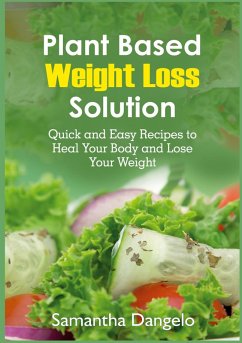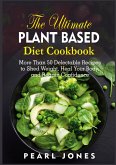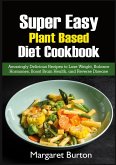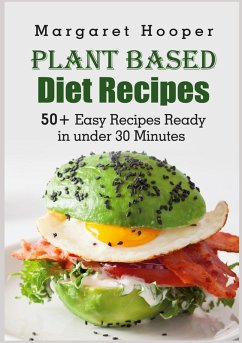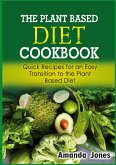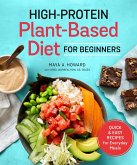A plant based diet is one where people try to avoid, or at least minimize the amount of meat and animal products they eat. This way, instead of getting their nutrients from animals, they get their nutrients from raw plants. Plant based diets are becoming more popular in recent years because of environmental concerns and health benefits that come with them. Biological differences between a vegetarian and nonvegetarian diet include how much processed food a person typically eats when compared to the amount eaten by those who eat meat. The Centers for Disease Control and Prevention (CDC) reported that 70.1% of adults aged 18-65 consume at least a serving each day of refined grains, compared to 49.6% of people who have a diet primarily composed of vegetables, fruits, seafood or lean meat. On average, vegetarians consume more fruits and vegetables than meat eaters; however, this is mostly because they tend to eat less meat compared to non-vegetarians (the average American consumes 95 grams of lean meats versus 35 grams of fruits and vegetables per day). The average American take twice as much sugar as the average person who avoids animal products; while the amount consumed by vegetarians is almost identical. This book covers ? Breakfast recipes ? Lunch recipes ? Dinner recipes ? Snacks recipes ? Dessert recipes And much more For starters, it's important to note that there are many different types of plant-based diets. The most popular type includes any food that comes from plants (fruits, vegetables, legumes), but excludes meat and animal byproducts such as dairy or eggs. Some people choose a vegan diet which involves completely cutting out all animal products from their diet. Other people simply choose to strategically remove animal products from their diet for health reasons. And some people still choose to use dairy or eggs in moderation.
Dieser Download kann aus rechtlichen Gründen nur mit Rechnungsadresse in A, B, BG, CY, CZ, D, DK, EW, E, FIN, F, GR, H, IRL, I, LT, L, LR, M, NL, PL, P, R, S, SLO, SK ausgeliefert werden.

